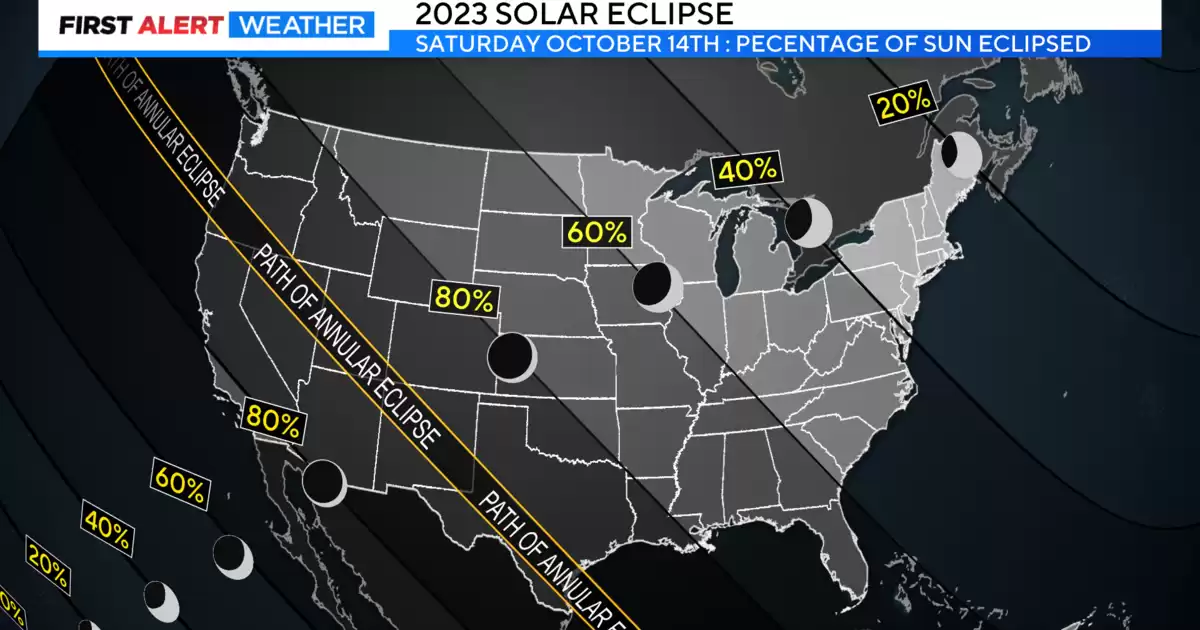Saturday's annular solar eclipse Colorado
Rare celestial sight: Annular Solar Eclipse on October 14th in Colorado. "Ring of Fire" effect. Partial eclipse visible in Denver. Safety precautions necessary.
On Saturday, October 14th, Colorado will be treated to a rare celestial event - the first eclipse visible in the state in the last six years. However, this time it won't be a total solar eclipse, but rather an annular solar eclipse, which creates the mesmerizing "Ring of Fire" effect.
During an annular solar eclipse, the Moon passes between the Sun and Earth, but it is at or near its farthest point from Earth. This alignment causes the Sun, Moon, and Earth to be perfectly lined up, resulting in the moon covering slightly less of the Sun. As a result, instead of the Moon fully covering the Sun, a dark disk appears on top of the larger, bright disk, creating a stunning ring around the moon.
If you're in Colorado, there's a catch - you may need to take a drive to the Four Corners area to witness the full eclipse. The eclipse's path runs from Albuquerque up into southern Oregon, making it the optimal location for the best view.
The annular solar eclipse will occur on Saturday, October 14th, starting at 9:11 am. It will reach totality over southwestern Colorado at 10:33 am. However, in the Denver metro area, it will be classified as a "Partial Solar Eclipse" since the Sun, Moon, and Earth won't be perfectly aligned like they will be in the Four Corners area. Denver residents can expect about 84% totality at 10:36 am, starting off at 9:14 am.
During a partial solar eclipse, only a portion of the Sun will appear to be covered, giving it a crescent shape. It's important to note that during a total or annular solar eclipse, those outside the area covered by the Moon's inner shadow will witness a partial solar eclipse.
For a total solar eclipse to occur, the Moon must completely block the face of the Sun, and it must be closer to the Earth or closer to perigee. This phenomenon can cause the sky to darken as if it were dawn or dusk, and the Sun's corona becomes visible. The next total solar eclipse in the U.S. is set to take place on April 8th, 2024. However, unfortunately, most of Colorado will not experience the event at 100% coverage. Only around 60 to 70% coverage is expected, so those seeking the full 100% experience may have to travel to Dallas.
Lastly, it's crucial to prioritize safety when observing an eclipse. Looking directly at the Sun's rays, even if it's partially obscured, is never safe. Therefore, it is essential to wear eclipse glasses at all times when facing the Sun or utilize an alternate indirect method to protect your eyes.











Comments on Saturday's annular solar eclipse Colorado